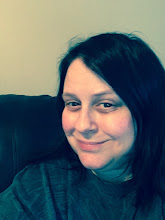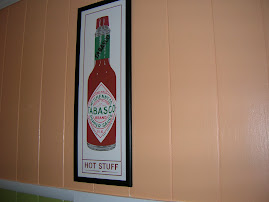 This post was inspired by the book LEAN IN, by Sheryl Sandberg. It isn’t a review, because I haven’t actually read the book. In fact, the post was more inspired by some of the reviews of the book, which is apparently about the inequality women still face in the work force and how to overcome it. It may even be broader than that, possibly about the inequality women face in life in general.
This post was inspired by the book LEAN IN, by Sheryl Sandberg. It isn’t a review, because I haven’t actually read the book. In fact, the post was more inspired by some of the reviews of the book, which is apparently about the inequality women still face in the work force and how to overcome it. It may even be broader than that, possibly about the inequality women face in life in general. It also, according to the book’s own blurb, gives examples of things women do to hold themselves back. It seems there are some things people do that are seen as positive attributes in men but seen as negative in women. I can guess a few–or at least, what I think would be included. Perhaps cursing? Being direct? Standing to pee?
I am not trying to minimize the message of this book. And actually, I probably will buy it and read it because now I’m curious. But so far, I haven’t seen myself personally affected by the inequality in the sexes in the work place.

I’ve had jobs varying from waiting tables (my first job), to dancing in a can-can show (my college job), to collecting child support (my law school job), to being an appellate public defender (my current job.) In none of those jobs did I feel men were making more money, getting better promotions, or reaping any benefits I wasn’t by virtue of the fact that I was a woman. In fact, some of those jobs were not even available to men, such as the can-can job.
While there was an unofficial Boy’s Club at the D.A.’s Office in New Orleans when I was a prosecutor in the late ‘90s, Boys Club is probably a misnomer. The group of the elite was not at all limited to men. It was limited only by one’s ability to suck up. Thus, anyone willing to kiss enough booty would be granted privileges.
The odd thing about the elite group was that sometimes they got screwed by the bosses as an inside joke. The two male prosecutors who sucked up the most and spent the most time hanging out with the chief ended up getting assigned, together, to the absolute worst section of court that no self-respecting attorney wanted to get stuck in–a section where the female judge was crazy. She soaked her feet– in pantyhose, mind you– in a water-filled foot spa that made noise and attracted gnats and made the entire courtroom smell like Fritos. Her chambers were decorated with gigantic blown-up photos of her, and she had wigs lined up on her shelves where other judges had law reference books.
Worse than all of this, she hardly ever went to trial. The two attorneys assigned to her section were in a contest to see who could do the most jury trials that year, 100 being the ultimate goal, a goal they were not going to reach in this section. And when a case did go to trial, it was painful, with bad rulings, long, irrational comments that had nothing to do with the case at hand, and the judge playing solitaire on her laptop and staring at herself in a handheld mirror so much she would often ask for testimony to be read back to her by the court reporter because she had missed it.
So I can’t say that any of my past jobs were impacted by the fact that I’m a woman. It could be I was just lucky in my job choices. But reflecting on the equality or inequality of the sexes in the area of employment has me wondering if there is any truth to the theory when it comes to writers and writing.
Do publishers judge female writers differently from male writers when they are considering a manuscript? Do more readers tend to buy certain types of books because they believe the writer is male than if the writer is female and vice versa? Why do some female writers use gender non-specific names than their real name? Do they know something I don’t?
I can’t imagine sexism exists in the world of book publishing and book purchasing. But maybe there is and no one has written a book about it yet.










5 comments:
Great comments, Holli. For my two cents, I can say I experienced quite a lot of gender based obstacles in my pre-OTP days. In fact, when I was about to break through and be named the first female department head at the company where I worked (late 1970s), the director of personnel insisted that I spend a day with a psych, being tested for suitability. No men were ever asked to have a psych evaluation, and this was accounting, for cripes sakes!
But I do think many of these practices have faded away. Often when chatting with someone considerably younger than me, I am struck at how many of my experiences seem like sci-fi to them...and this is a good thing!
I think the book biz followed a similar evolution, and now female authors are not regarded as less than male authors. We have a female author who writes westerns, and feels strongly that she be known by her initials, so maybe she knows something I don't.
OTP does not discriminate among authors for gender, age or any of those meta things....just don't kill off a doggie!
Billie Johnson, Publisher
I used the initials. F. M. Meredith way back when I first started writing the Rocky Bluff P.D. series because so much of it was from the male POV and it just seem like the right thing to do. Now, I don't think it matters at all. (And when that first book came out, the initial publisher put my picture on the back which of course ruined the whole idea.)
In the 1970's and 80's gender based obstacles were common in universities, especially in science areas. Now the obstacles are harder to define, but the stats suggest fewer women, who get PhDs, end up as as professors than men.
Biases do exist in publishing now. Many men, who write romances, use feminine aliases. Woman, who write crime novels, still use initials.
JL Greger, author of medical mysteries Ignore the Pain & Coming Flu
Good article, Holli. When I owned my bookstore, I learned that a woman had to stand and deliver to maintain her place in the business world. One idiot man actually came in and told me that as far as he was concerned, women were second class citizens. One word describes him - jerk. But that was back in the mid-80s and the business world has changed a lot since then. I've only been in the book business for a year now and, so far, have not run into any gender discrimination. Of course, my publisher (Billie) is also a woman. Her stories from the late 70s sound like mine at my bookstore.
In the late 1960s, women were often held to a dress code that men were not...skirts and dresses only, nylon and high heels. One day, I wore a pantsuit to work! It rocked them! It was a beautiful suit, very business-y, but Pants on a woman?!?!? OMG!!
I got called to Personnel and they debated sending me home without pay! Finally, they did not....but the director of personnel ended up sending out a 'to all' memo about proper attire in the workplace with the heavy tone that my pants were NOT okay.
Too bad...the genie was out of the box...thereafter many women there began to show up in pantsuits!
Billie
Post a Comment